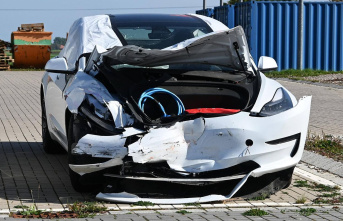Smaller cities in Germany in particular are still struggling with digital transport concepts. This is the result of a study by the auditing and consulting company PwC, which evaluated "smart" mobility offers in 81 German cities. Things are going particularly well in the megacities: Hamburg, Berlin and Munich land at the top of the ranking. But Nuremberg took first place.
The intelligent offers include the experts autonomous vehicles and free WiFi in local transport, e-scooter or car sharing offers and micro depots in delivery traffic. The latter has been introduced in almost half of the major cities, partly as a pilot project. More than 60 percent of cities use intelligent parking systems. With the help of sensors and cameras, for example, the search for a parking space is made easier or drivers can make digital reservations and payments.
In Nuremberg, the use of intelligent traffic lights and the introduction of a mobility app paid off. The city has moved from seventh place to the top of the annual ranking within a year. Since 2008, the only driverless and fully automated subway in Germany has also been running in Nuremberg. According to PwC, smaller cities with fewer than 200,000 inhabitants generally still have noticeable deficits when it comes to local transport and sharing offers.
The data was collected as part of the Bitkom Smart City Index, in which all major German cities are examined with regard to their digitization and sorted into a ranking. It includes the aspects of transport, administration, IT, communication, energy, environment and society. Data was collected between April and July 2022.








